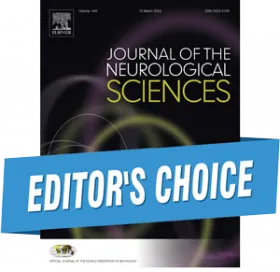
Image: iStockphoto.com
Authors: Papadopoulou E, Pepe G, Konitsiotis S, Chondrogiorgi M, Grigoriadis N, Kimiskidis VK, Tsivgoulis G, Mitsikostas DD, Chroni E, Domouzoglou E, Tsaousis G.
 Editor's Choice
Editor's Choice
Journal of the Neurological Sciences. 2023 Mar 5:120609
Open Access
DOI: https://doi.org/10.1016/j.jns.2023.120609 ⧉
Highlights
- Appropriate genetic test selection is imperative for Mendelian neurological disorders' analysis.
- Next generation sequencing technology and appropriate bioinformatic infrastructure could facilitate the assessment of neurological disorders
- There is insufficient evidence to support the use of variants of uncertain significance for clinical decision-making.
- Genetic counseling and interdisciplinary collaboration could further improve diagnostic yield.
- Emerging evidence supports genetic analysis for diagnosis and personalized management of neurological patients.
Abstract
Technological advancements have facilitated the availability of reliable and thorough genetic analysis in many medical fields, including neurology. In this review, we focus on the importance of selecting the appropriate genetic test to aid in the accurate identification of disease utilizing currently employed technologies for analyzing monogenic neurological disorders. Moreover, the applicability of comprehensive analysis via NGS for various genetically heterogeneous neurological disorders is reviewed, revealing its efficiency in clarifying a frequently cloudy diagnostic picture and delivering a conclusive and solid diagnosis that is essential for the proper management of the patient.
The feasibility and effectiveness of medical genetics in neurology require interdisciplinary cooperation among several medical specialties and geneticists, to select and perform the most relevant test according to each patient's medical history, using the most appropriate technological tools.
The prerequisites for a comprehensive genetic analysis are discussed, highlighting the utility of appropriate gene selection, variant annotation, and classification. Moreover, genetic counseling and interdisciplinary collaboration could improve diagnostic yield further. Additionally, a sub-analysis is conducted on the 1,502,769 variation records with submitted interpretations in the Clinical Variation (ClinVar) database, with a focus on neurology-related genes, to clarify the value of suitable variant categorization.
Finally, we review the current applications of genetic analysis in the diagnosis and personalized management of neurological patients and the advances in the research and scientific knowledge of hereditary neurological disorders that are evolving the utility of genetic analysis towards the individualization of the treatment strategy.








